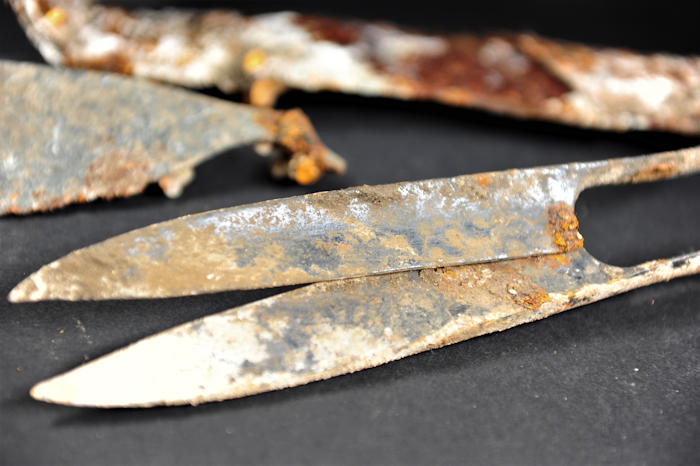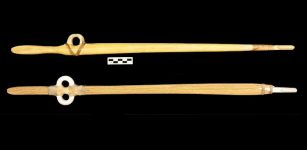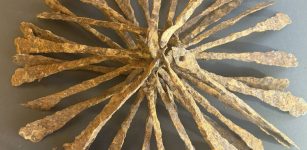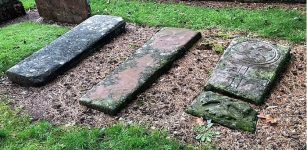Amazingly Well-Preserved 2,300-Year-Old Celtic Scissors And Curious Folded Sword Found By Archaeologists
Jan Bartek - AncientPages.com - Archaeologists stumbled upon something extraordinary while excavating a Celtic grave. They discovered a pair of extremely well-preserved scissors and a strangely folded sword in the grave.
The excavation team from the Bavarian State Office for the Preservation of Monuments (BLfD) made the find in Munich's Sendling district. According to scientists from BLfD, the unearthed high-quality grave goods prove that the deceased had a high social status. Researchers were amazed by the preservation of the 2,300-year-old scissors that look almost like new, without rust and light glittering.
Archaeologists found 2,300-year-old Celtic scissors that are almost like new. Credit: BLfD
"A pair of scissors that are more than 2,300 years old and in a condition as if they could still be used today - that's a very special find," Mathias Pfeil from the BLfD said. "The fortunate fact that this tool was so excellently preserved is just as impressive as the craftsmanship of this object," Pfeil added.
The Celtic grave was found when experts searched for possible explosive devices from the Second World War in the Munich district of Sendling. The explosive ordnance disposal team discovered interesting underground structures that might be of archaeological interest and then informed the BLfD.
The tomb was centrally located in a square structure that had once been highlighted by four individual posts. According to local Celtic funerary customs, the deceased individual was burned and buried with grave goods. In addition to the scissors, the archaeologists also found the remains of a shield, a lance tip, a razor, a fibula in the grave, and an intriguing folded sword.
These grave goods reveal vital information about the Celts living in this region. Credit: BLfD
An examination of the sword's blade revealed it had been deliberately heated, folded, and thus rendered unusable. Why the sword had been destroyed this way is a matter of speculation. One possible reason for this reshaping could be to save space. Perhaps the sword was folded simply to fit in the burial pit, researchers said. Another option is the sword was deprived of its function to protect the whole tomb from looting. Yet another theory is that the sword was a ritual funeral object placed in the tomb to continue serving the dead in the afterlife. It is also possible the blade's destruction has superstitious roots. The sword bending could have been done to disarm the restless spirit of the deceased.
Several items were found in the Celtic grave. Credit: BLfD
The magnificent ancient Celtic scissors were used either for cutting hair or textiles. The scissors were either hair scissors or for cutting textiles. The Celts may also have used them to shear sheep. According to Pfeil, the unearthed grave goods provide a fascinating insight into the Celtic past in the region.
See also: More Archaeology News
As previously stated on Ancient Pages, "Celtic roots are found in the Rhine and the Danube, where their ancestors settled around 2000 BC in western Austria, Bavaria, and Switzerland; it has been confirmed by archaeological discoveries in the town of La Tene (Switzerland). But tracing the lineage of the Celts back to antiquity is very difficult because of a lack of written history of Europe in the distant past."
Written by Jan Bartek - AncientPages.com Staff Writer























